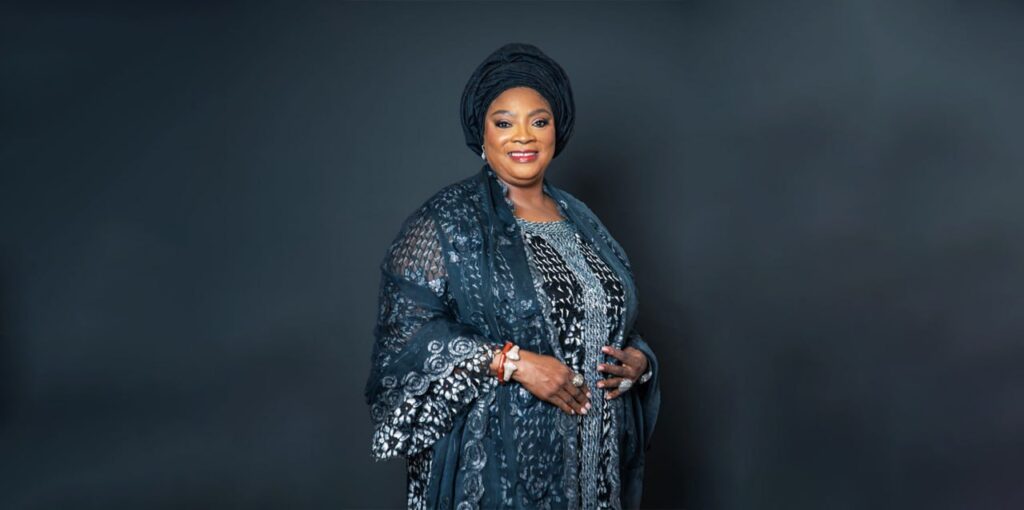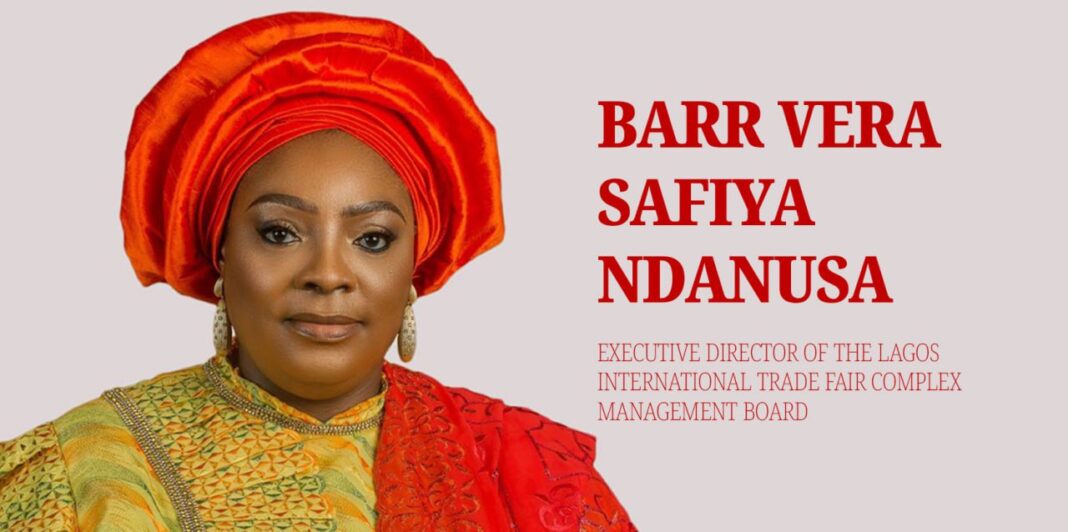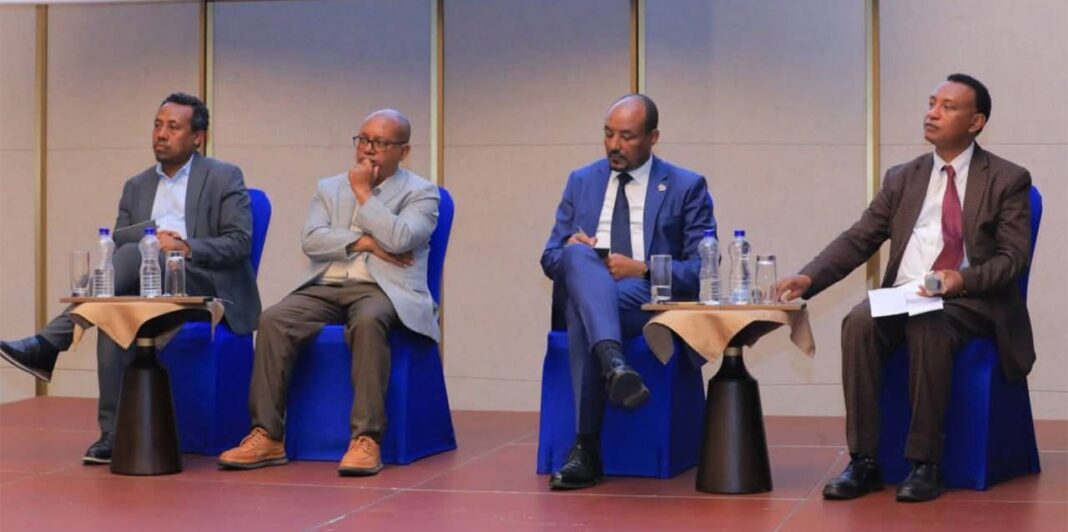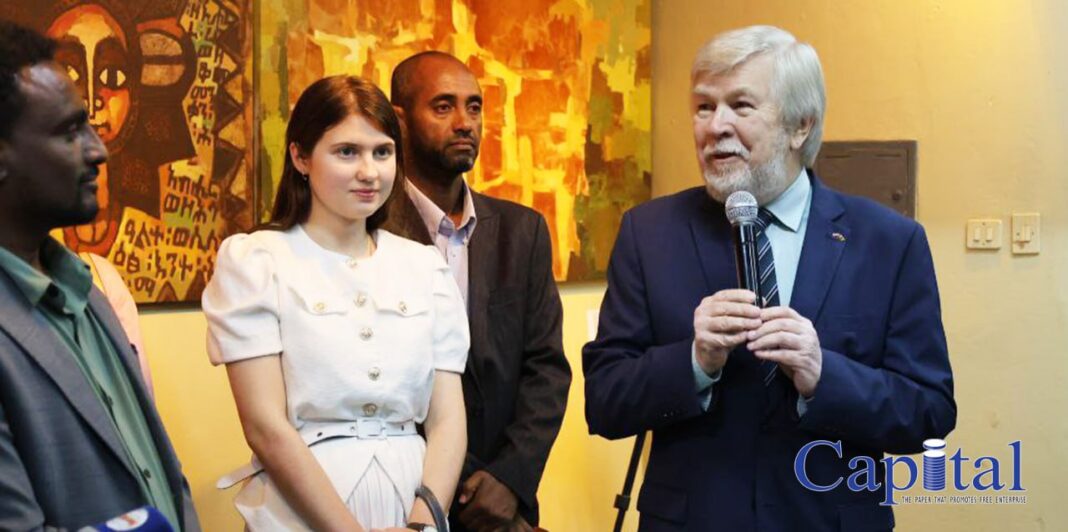Barr Vera Safiya Ndanusa, Executive Director of the Lagos International Trade Fair Complex Management Board, is a leading figure in Nigeria’s trade and investment landscape. With over two decades of legal expertise and a strong commitment to entrepreneurship and women’s empowerment, she has played a pivotal role in revitalizing the Nigeria International Trade Fair. Under her leadership, the fair returned to its original complex in 2023 after a 14-year hiatus, earning presidential recognition. In this interview, Barr Safiya discusses the recent controversies surrounding the Trade Fair Complex, the government’s vision for sustainable trade development, and the ambitious plans for NITF 2025 to position Nigeria as a gateway to the $700 billion ECOWAS market and the African Continental Free Trade Area (AfCFTA). Excerpts;
Capital: There’s been some controversy around the recent demolition at the Trade Fair Complex. Can you clarify what exactly is going on?
Safiya Ndanusa: The issue is quite straightforward. Officials of the Lagos State Government carried out a demolition exercise without prior notice or communication, despite knowing that the facility is managed by a federal agency. The Nigeria Trade Fair Complex is a federal property under the supervision of the Federal Ministry of Industry, Trade and Investment. Our agency, headed by a Chief Executive Officer appointed by the President, operates under the Lagos International Trade Fair Management Board Act of 2004, which empowers us to develop, maintain, and manage the complex including estate administration and building approvals.
The Constitution clearly defines the jurisdictions of the federal, state, and local governments, and places commerce under the exclusive legislative list. This means the Federal Government has primary responsibility for trade-related matters, including the management of the complex. I have no objection to Lagos State showing interest or seeking to understand what goes on within the complex. However, the concern lies in the manner the recent demolition was conducted. As the only federal agency mandated to organize international trade fairs, exhibitions, and other commercial activities in Nigeria, we remain committed to fostering collaboration while ensuring the complex continues to serve its purpose as a regional hub for trade across West Africa.
Capital: How do you reconcile this with the 2003 Supreme Court judgement on the power of Lagos State as regards facilities like the Trade Fair Complex?
Safiya Ndanusa : Naturally, some people have referenced the 2003 court judgment that allows the Lagos State Government to regulate and approve building plans within the Trade Fair Complex. However, I believe this is an issue that should be discussed at the table. Yes, there’s the question of sovereignty, but can a state government simply enter a federal property and take such actions without proper engagement? Due process must always be followed. The fact that these traders operate within the complex does not make them lesser citizens. They deserve respect, and so does the structure of governance that oversees them. My position should not be misunderstood.
I represent the Federal Government in this role, not myself personally. As the head of a federal agency appointed by the President, my responsibility is to protect and manage this property in line with the law. Some have said traders build without state approval, but under the Lagos International Trade Fair Management Board Act, our agency is legally empowered to approve developments within the complex. If that framework has changed, then it should be formally discussed — government to government. Both levels of government are meant to work in partnership; we operate within one nation. Where conflicts arise, the Constitution gives precedence to the Federal Government, though that’s not the path I wish to emphasize. My point is simply that collaboration is key.
Capital: What measures have been taken to support affected traders and businesses during this transition period given that in a couple of weeks, there’s going to be the Nigeria International Trade Fair?
Safiya Ndanusa: First of all, the board did not carry out the demolition. I acknowledge that we oversee the complex and that the affected parties report to the board, but we were not responsible for bringing down the buildings. As the head of the agency, I will not allow law and order to break down under my watch. I have met with the stakeholders and those directly affected, and I truly empathize with them. I understand that many have lost their means of livelihood and that a lot has gone wrong. Still, I appeal for patience as we work toward a peaceful resolution. Let me assure you that, despite what has happened, constructive engagements are already taking place. We’ve held our first meeting with the Lagos State Government, and all parties have agreed to consult with experts to determine the best way forward. This situation will not affect our upcoming Trade Fair in any way. We are building mutual understanding, and our legal teams are reviewing the matter to strengthen cooperation and restore confidence moving ahead.
Capital: What is the management doing to ensure these developments don’t affect the 2025 Nigeria International Trade Fair?
Safiya Ndanusa: The 2025 Nigeria International Trade Fair remains a top national priority, and preparations are fully on track. Notwithstanding the recent incidents, I want to reassure everyone, exhibitors, partners and the general public, that it will not impact the fair in any way. This event is much bigger than the Trade Fair Complex; it’s a federal initiative that speaks to Nigeria’s economic ambitions and global engagement. All relevant stakeholders — both locally and internationally, have been briefed and remain confident in our ability to deliver a world-class event. We are taking every step to ensure the safety, stability, and success of the fair. There will be no further disruptions or activities that could compromise the experience. Under the leadership of President Bola Ahmed Tinubu, the federal government is fully committed to enabling growth, driving investment, and fostering an environment where commerce can thrive. With the support we have from key national security agencies and state agencies, we are assuring everyone that NITF 2025 will go on — peacefully, securely, and successfully.
Capital: The Nigeria International Trade Fair (NITF) is returning under its OG name after a 14-year hiatus. What are the key reasons for reviving this event now, and why is its original name and national mandate being restored?
Safiya Ndanusa: Nigeria and the wider African economy are at an inflection point. Over the last decade we’ve seen accelerated regional integration, renewed investor interest in Africa, and rapid growth in sectors like tech, agribusiness and manufacturing. Restoring the fair to its original name and location is about reaffirming its mandate as Nigeria’s national marketplace — a platform founded in 1981 with a legacy of convening business and government to drive growth. Using the original name signals continuity, credibility and a commitment to rebuild the fair as Nigeria’s flagship gateway to ECOWAS and AfCFTA markets.
Capital: The fair is positioned as a “gateway to the $700B ECOWAS market”; and a platform for the African Continental Free Trade Area. How specifically will NITF 2025 help Nigerian businesses, particularly SMEs, leverage these massive regional and continental markets?
Safiya Ndanusa: Direct access to buyers and distributors from across West Africa and beyond. Participation in sector-specific workshops on export readiness. We’re creating opportunities for financing and digitalisation; inclusion in curated B2B matchmaking sessions to meet investors and trade partners; and visibility through public-facing showcases that help brands build consumer recognition. We are also introducing the NITF Awards, which will recognise innovation, resilience and excellence among SMEs and large businesses alike.
Capital: Could you elaborate on how technology and digital trade will be integrated into the fair’s activities, and what tangible outcomes you expect from this focus?
Safiya Ndanusa: Technology and digital trade are central to this year’s theme: “Trade, Technology and Transformation: Leveraging Digital Trade for Economic and Industrial Growth.” We’re integrating them in two ways. First, through thematic pavilions and workshops on digital transformation, e-commerce, fintech, and green technology, giving businesses exposure to cutting-edge solutions. Second, through conversations on policy and regulation that support digital trade across borders. The outcomes we expect include increased adoption of digital tools by Nigerian SMEs, new partnerships with global tech players, and real case studies of businesses that expand into new markets through digital channels after the fair.
Capital: The fair aims to facilitate B2B and B2G exchanges. What measures have been put in place to ensure that these interactions result in concrete deals and partnerships, rather than just networking?
Safiya Ndanusa: We’ve moved away from informal networking to structured deal-making. The fair will feature sector-specific “deal rooms” where B2B and B2G meetings can take place in private, facilitated by professional moderators. We’re also curating matchmaking sessions in advance, ensuring businesses meet relevant buyers, investors, or government agencies based on their profiles. Beyond that, we’ll be tracking deal flow by following up with participants after the fair to document contracts signed, MOUs executed, and partnerships launched. The goal is for every interaction at NITF 2025 to have a clear pathway to action.
Capital : With over 250 exhibitors and 1,000 SMEs expected, how will the fair ensure that a diverse range of sectors, from textiles to emerging tech, are adequately represented and that exhibitors from different countries can effectively connect?
Safiya Ndanusa: We are intentionally curating participation across priority sectors — textiles, agriculture, industrial manufacturing, electronics, and emerging tech — while making space for creative industries and services. Our outreach strategy includes partnerships with sectoral ministries, trade associations, export promotion bodies, and state governments to ensure geographic and industry spread. The partnership with NACCIMA (Nigerian Association of Chambers of Commerce, Industry, Mines and Agriculture) has been pivotal in helping us reach a wide range of businesses across Nigeria.
Capital: What will be the key performance indicators (KPIs) for the success of NITF 2025? Beyond the number of visitors and exhibitors, how will you measure its impact on the Nigerian economy and trade sector?
Safiya Ndanusa: Beyond attendance numbers, our KPIs are focused on measurable economic impact. These include:
■ Value of deals and contracts signed during and immediately after the fair.
■ Volume of foreign direct investment commitments attracted
■ Number of SMEs that secure export opportunities or new financing.
■ Diversity of sectors represented and geographic spread of exhibitors.
■ Policy and regulatory outcomes — such as frameworks or initiatives
announced at the fair that improve the trade environment.
We also see success in long-term metrics, like how many SMEs grow into regional exporters or how many international exhibitors establish ongoing operations in Nigeria.

Capital: The fair is a collaboration with the Ministry of Industry, Trade and Investment. How has this partnership been instrumental, and what role do you see the government playing in sustaining the fair’s impact beyond the 10-day event?
Safiya Ndanusa: The Ministry has facilitated access to trade envoys, international delegations, and regulatory agencies, which strengthens the fair’s impact. Beyond the event itself, the government’s role is to sustain momentum by embedding NITF outcomes into policy frameworks, providing follow-up support to SMEs and investors, and ensuring continuity through institutional support. By working hand in hand, we can turn a 10-day fair into year-round economic activity.
Capital: Given the long hiatus, what were some of the challenges or reasons that led to the fair’s suspension, and how has the management board addressed those issues to ensure this revival is sustainable for the long term?
Safiya Ndanusa: The long suspension was the result of a mix of institutional and operational challenges — ranging from governance gaps to funding difficulties and competing priorities. Those realities made it hard to sustain an annual national fair of this scale. Since then, the Trade Fair Complex Management Board, under the Federal Ministry of Industry, Trade & Investment, has taken deliberate steps to strengthen governance, diversify funding through public-private partnerships, and build an operational framework that ensures continuity. Today, the fair has a clear calendar, a sustainable financing model, and a strong coalition of partners including NACCIMA and private sponsors. These foundations are what make us confident that this revival is not just symbolic, but permanent.
Capital: Expected attendees include delegations from multiple countries. What are the key incentives or value propositions being offered to attract international exhibitors and investors, and how do you see their participation benefiting local businesses?
Safiya Ndanusa: We’re working with the Ministry of Trade & Investment and diplomatic missions to invite trade delegations and international buyers. We’re also using targeted outreach to industry associations and chambers of commerce in Europe, Asia and the Americas, highlighting Nigeria’s gateway position to ECOWAS and the scale of opportunity under AfCFTA. To make participation easier, we’re offering exhibitor facilitation — streamlined logistics, tailored B2B meetings, and curated investor introductions. On one hand, Nigerian SMEs gain exposure to global buyers, suppliers, and technologies they might not otherwise access. This can translate into export contracts, joint ventures, and knowledge transfer that raise product quality and competitiveness. On the other hand, international players are actively seeking credible partners to enter the Nigerian and West African market.
Capital: Following the success of NITF 2025, what is your long-term vision for the Nigeria International Trade Fair? How do you plan to build on this year’s momentum to make it a permanent fixture on the global trade calendar?
Safiya Ndanusa: Our vision is to create a 10-day ecosystem where trade deals happen, start-ups and SMEs scale, foreign direct investment is catalysed, and sectoral storytelling, from green tech to manufacturing, elevates Nigeria’s value proposition. Compared to earlier editions, this fair places stronger emphasis on B2B matchmaking, investor engagement, capacity-building for SMEs, and the revitalization of Nigeria’s official trade fair. This year’s edition is themed “Trade, Technology and Transformation:
Leveraging Digital Trade for Economic and Industrial Growth,” which reflects our focus on digitalisation, innovation, and transformation as enablers of industrial growth. It is in deliberate alignment with Mr President’s Renewed Hope Agenda – his vision for Nigeria and his bold economic reforms and steps, telling the world that Nigeria is not only open for business but ready to lead Africa’s next phase of industrial and digital growth.







